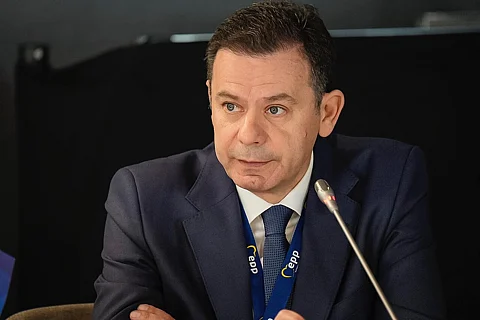

Portugal’s center-right Democratic Alliance (AD) secured the most seats in Sunday’s snap election but failed to win a parliamentary majority, while the far-right Chega party surged to tie with the Socialist Party (PS) as the country’s second-largest political force, according to near-final official results.
With 99.6% of votes counted, the AD—led by acting Prime Minister Luís Montenegro—won 32.7% of the vote, translating to 89 seats in the 230-member Assembly of the Republic. However, this falls well short of the 116 needed for a majority. The Socialist Party, which forced the early election after withdrawing support for Montenegro’s minority government, suffered a sharp decline, dropping to 23.4% (58 seats). Meanwhile, Chega more than doubled its support to 22.6% (58 seats), matching the Socialists and cementing its role as a kingmaker.
This marks Portugal’s third election in three years, underscoring a prolonged period of political turbulence. The AD’s predecessor government collapsed in March after Montenegro lost a confidence vote amid opposition scrutiny over his family’s consultancy firm, Spinumviva. Though he denied wrongdoing, the controversy eroded his minority administration’s stability.
Montenegro has repeatedly ruled out any coalition with Chega, whose leader, André Ventura, has pushed for stricter immigration policies. Instead, the AD may seek ad-hoc support from smaller parties like the pro-business Liberal Initiative (IL), which won 4-8% of the vote. However, another fragile minority government risks further paralysis in addressing pressing national challenges.
The election was dominated by rising discontent over immigration and housing affordability. Portugal’s foreign-born population has tripled since 2018, reaching over 1.5 million—many from Brazil and South Asia working in tourism and agriculture. The outgoing government announced plans to deport 18,000 undocumented migrants just weeks before the vote.
Meanwhile, housing prices have soared by 9% in the past year, with Lisbon rents hitting 30-year highs. The crisis has been exacerbated by an influx of remote workers and investors, pricing out locals in one of Western Europe’s poorest nations, where the average pre-tax monthly wage is just €1,200.
Chega’s surge reflects broader European trends of far-right gains. From just one seat in 2019, it now commands a quarter of parliament. Ventura, who made a last-minute campaign appearance after hospitalization for esophageal spasms, has capitalized on anti-establishment sentiment.
“The system has been shaken,” declared Chega lawmaker Pedro Pinto. “We represent a governing alternative.”
With overseas votes still to be counted, the PS-Chega tie could shift. But Socialist leader Pedro Nuno Santos announced his resignation after the party’s worst result since 1987, leaving the door open for potential negotiations. While Santos opposes backing Montenegro, his successor—likely ex-Interior Minister José Luís Carneiro—will face pressure to avoid another election.